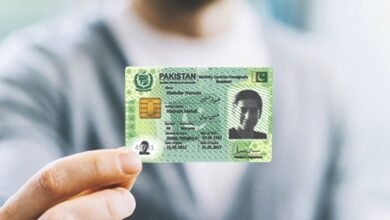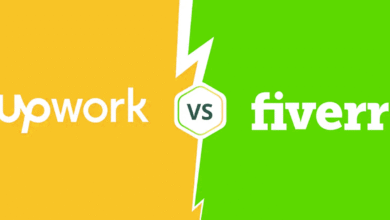
The digital revolution has opened up new economic opportunities through NFT marketplaces, allowing Pakistani creators and investors to participate in the global blockchain ecosystem. NFTs (Non-Fungible Tokens) have transformed how digital art, collectibles, and virtual assets are bought, sold, and traded. For Pakistani users, NFT marketplaces present a unique chance to monetize creativity, invest in digital assets, and connect with a worldwide audience. However, accessibility remains a challenge due to financial restrictions and limited payment gateways, making it essential to identify which platforms are truly viable for local users.
Despite regulatory uncertainties, several NFT marketplaces remain accessible to Pakistanis, offering different features, fee structures, and blockchain support. From global giants like OpenSea to crypto-exchange-integrated platforms like Binance NFT, Pakistani artists and collectors have multiple options to explore. This NFT Marketplaces examines the top NFT marketplaces available to Pakistani users, their pros and cons, and how to navigate financial and technical barriers for seamless participation in the NFT economy.
NFT Marketplaces Available to Pakistani Users
OpenSea
OpenSea is the most popular NFT Marketplaces, supporting a wide range of digital assets, including art, collectibles, and virtual real estate. Pakistani users can access OpenSea, but they must use cryptocurrency wallets like MetaMask to conduct transactions. Since PayPal and credit cards are often restricted, users typically rely on peer-to-peer (P2P) crypto exchanges to fund their wallets. One advantage of OpenSea is its user-friendly interface and support for multiple blockchains, including Ethereum, Polygon, and Solana. Pakistani creators can mint NFTs with minimal gas fees on Polygon, making it a cost-effective option.
Binance NFT
Binance NFT Marketplaces is an excellent alternative for Pakistani users, as Binance’s P2P trading feature allows easy conversion of PKR to cryptocurrencies. The platform supports artists and collectors with low transaction fees and periodic NFT drops. Binance also offers a seamless experience for beginners, integrating wallet services directly into the exchange. The marketplace features exclusive collections, gaming NFTs, and digital art. However, users must complete KYC (Know Your Customer) verification, which can be a hurdle for some due to banking restrictions. Despite this, Binance NFT remains a top choice due to its liquidity and accessibility.
Rarible
Rarible operates on a decentralized model, giving creators more control over their NFTs. Pakistani users can mint and sell digital assets while earning royalties on secondary sales. The platform supports Ethereum, Flow, and Tezos blockchains, offering flexibility in transaction costs. Rarible’s governance token, $RARI, allows users to participate in platform decisions, making it a community-driven NFT marketplace. However, like OpenSea, users must rely on crypto wallets for transactions, which may be challenging for those unfamiliar with blockchain technology.
Mintable
Mintable stands out by offering “gasless” minting, meaning creators can list NFTs without upfront Ethereum fees. Pakistani artists can use this feature to avoid high costs, paying only when their NFT is sold. The platform supports Ethereum, Immutable X, and Zilliqa blockchains. Mintable also provides tools for businesses to create branded NFT stores, making it suitable for entrepreneurs. However, its user base is smaller than OpenSea or Binance NFT, which may limit visibility for new creators.
Foundation
Foundation is a curated NFT marketplace where artists must receive invitations to join. This exclusivity ensures high-quality digital art, attracting serious collectors. Pakistani artists who gain access can benefit from premium pricing and a prestigious platform. Transactions occur via Ethereum, so users must manage gas fees. While the entry barrier is high, Foundation offers significant earning potential for established digital artists.
Challenges Faced by Pakistani NFT Users
Payment Restrictions and Banking Limitations
One of the biggest challenges for Pakistani NFT users is the lack of direct payment support on most platforms. International services like PayPal, Stripe, and credit/debit card processors often block transactions from Pakistan due to financial regulations and compliance issues. As a result, users must rely on peer-to-peer (P2P) crypto exchanges to convert PKR into cryptocurrencies like Ethereum or BNB before engaging in NFT transactions. This extra step complicates the buying and selling process, discouraging newcomers.
Regulatory Uncertainty and Crypto Restrictions
The State Bank of Pakistan (SBP) has historically imposed restrictions on cryptocurrency transactions, creating legal ambiguity for NFT traders. While blockchain technology itself isn’t banned, the lack of clear regulations makes it difficult for users to operate confidently. Banks may freeze accounts linked to crypto transactions, and tax implications remain unclear. This regulatory gray area discourages institutional adoption and leaves individual users vulnerable to sudden policy changes.
High Transaction Fees (Gas Costs)
Most NFT marketplaces operate on Ethereum, where network congestion leads to exorbitant gas fees especially during peak trading times. For Pakistani users dealing with limited budgets, these fees can make minting and trading NFTs financially unviable. While some platforms offer alternatives like Polygon or Binance Smart Chain (lower-fee networks), Ethereum remains the dominant blockchain for high-value NFTs, forcing users to either absorb high costs or miss out on opportunities.
Limited Awareness and Technical Knowledge
Despite growing interest, many Pakistanis still lack a fundamental understanding of blockchain, wallets, and NFT mechanics. Scams, phishing attacks, and smart contract vulnerabilities pose risks for inexperienced users. Additionally, the absence of localized educational resources and community support makes it harder for newcomers to navigate the space safely. Without proper guidance, potential creators and investors may hesitate to enter the NFT market.
How Pakistani Creators Can Succeed in NFT Marketplaces
Choose the Right Platform Beginners should start with user-friendly platforms like Binance NFT or OpenSea. Leverage Social Media is Promoting NFTs on Twitter, Instagram, and Discord can increase visibility. Collaborate with Communities is Joining NFT groups and forums helps in networking and gaining insights. Optimize for Low Fees Using Polygon or other low-fee blockchains reduces costs. Stay Informed Keeping up with NFT trends ensures competitive pricing and marketing strategies.
Future of NFTs in Pakistan
Increasing Adoption Among Creators & Businesses
Pakistani artists, musicians, and content creators are gradually recognizing NFTs as a viable way to monetize their work globally. Digital art, music albums, and even literary works are being tokenized, allowing creators to earn directly from their audience without intermediaries. In the future, more local businesses particularly in gaming, fashion, and entertainment may adopt NFTs for branding, loyalty programs, and digital collectibles.
Expansion of Blockchain Education & Communities
Awareness and education around NFTs are slowly improving, thanks to local crypto communities, YouTube tutorials, and blockchain-focused events. Universities and tech incubators may soon introduce courses on Web3 and decentralized finance (DeFi), empowering a new generation of Pakistani developers and entrepreneurs to build NFT-based projects.
Regulatory Developments & Government Stance
The future of NFTs in Pakistan heavily depends on government policies. If regulators adopt a supportive stance similar to Dubai or El Salvador it could unlock investment, foster local NFT platforms, and integrate blockchain into sectors like real estate and intellectual property. However, if restrictions tighten, the market may remain reliant on decentralized workarounds.
Read More: What Are Non-Fungible Tokens and How Do They Work in Pakistan?
Conclusion
NFT marketplaces offer Pakistani creators and investors a groundbreaking opportunity to engage with the global digital economy. Despite challenges like payment restrictions and regulatory uncertainty, platforms such as OpenSea, Binance NFT, and Rarible provide accessible avenues for buying, selling, and trading NFTs. By leveraging P2P crypto exchanges and low-fee blockchain networks, Pakistani users can overcome financial barriers and tap into this innovative space. As awareness grows and technology evolves, NFT marketplaces could play a pivotal role in empowering local talent and fostering digital entrepreneurship.
The future of NFTs in Pakistan looks promising, provided users stay informed about platform options, transaction methods, and legal developments. With the right strategies, Pakistani artists can showcase their work to a worldwide audience, while collectors can diversify their portfolios with unique digital assets. As NFT marketplaces continue to expand, they hold immense potential to revolutionize Pakistan’s creative and financial landscape, bridging the gap between local talent and global opportunities.
FAQs
Can Pakistanis legally buy and sell NFT Marketplaces?
Yes, but due to crypto restrictions, users must rely on P2P exchanges to acquire cryptocurrencies for transactions.
Which NFT marketplace is best for beginners in Pakistan?
Binance NFT is user-friendly and supports P2P crypto purchases, making it ideal for beginners.
How can Pakistani artists mint NFTs without high fees?
Platforms like Mintable (gasless minting) and Polygon-based marketplaces reduce Ethereum gas costs.
Are earnings from NFTs taxable in Pakistan?
Currently, Pakistan has no clear NFT tax laws, but users should stay updated on regulatory changes.
Can NFTs be sold for Pakistani Rupees (PKR)?
Most NFT marketplaces deal in cryptocurrencies, so PKR must be converted via P2P exchanges first.











